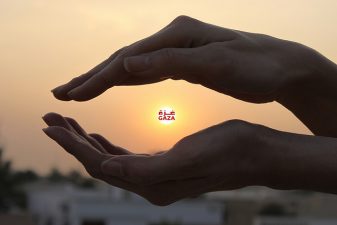 Saudi Arabia prepares in advance for a future without oil, putting solar energy in its place.
Saudi Arabia prepares in advance for a future without oil, putting solar energy in its place.
Possessing a fifth of the world’s proven oil reserves, Saudi Arabia has long been synonymous with the petroleum industry, but this is not stopping the kingdom from striving to diversify its energy sources. Renewable sources could account for up to 10 percent of Saudi Arabia’s power output by 2020, an executive from the state-owned national oil company Aramco said. “The proposed target is between 7 to 10% of peak electricity generated by renewables by 2020,” Ahmad al-Khowaiter, director of new business evaluation department at Aramco told Reuters.
Solar Saudi
The renewable energy would most likely be solar energy, he said, and Saudi Arabia will start exporting solar energy by 2020. Khowaiter said the “strategic move into solar,” could be achieved in 10 years time, when the economy will be in favor of employing solar power.
The kingdom is facing a rapid increase in domestic power demand and is already looking at new ways of creating energy, including nuclear power.
Earlier this year, Saudi Arabia announced the establishment of a new energy complex, in an effort to diversify its oil-based energy industry. The Riyadh-based King Abdullah City for Nuclear and Renewable Energy will be tasked with research and application of nuclear technology and will oversee all aspects of a nuclear power industry.
Saudi Arabia’s economy is oil-based, with strong government controls over major economic activities. The kingdom possesses around 20% of the world’s proven petroleum reserves and ranks as the largest exporter of petroleum in the world.
OPEC
Saudi Arabia plays a leading role in the Organization of the Petroleum Exporting Countries (OPEC) and has a petroleum sector that accounts for roughly 80% of its budget revenues, 45% of its GDP and 90% of its export earnings.
But the kingdom’s population growth and energy subsidies have increased domestic consumption of oil and gas, fueling concerns about the future of its energy economy.
“Let us give credit where it is due,” Meena Janardhan, a fellow at The Energy and Resources Institute (TERI) in Dubai told The Media Line. “This is an oil-rich region, and for countries like Saudi Arabia and the UAE to announce renewable energy commitments and initiate work towards achieving these goals, are very positive steps. It is not just economic motivation that turns the wheel in this case.”
“There is an ongoing shift in Saudi Arabia and in the region,” Dr. Theodore Karasik, director for research and development with the Dubai-based Institute of Near East and Gulf Military Analysis told The Media Line.
UAE Lead
“It’s significant, because the UAE has taken the lead on this, and of course, the other states want to follow on this path. It’s part of the renewed interest in the environment, and the fact that they need to start moving towards the eventuality of when hydrocarbons run out. It’s 50 years away but that’s also why they’re moving towards nuclear energy. These countries have the highest carbon emissions in the world per capita and so they want to improve that,” he said.
Karasik and Janardhan agreed that the goal of making 10% of Saudi Arabia’s power output based on renewable energy by the year 2010 seemed feasible.
Regarding nuclear energy, some analysts say it is essential for meeting the kingdom’s energy needs.
“Saudi Arabia is using 15% of its oil output currently for producing electricity and desalinization of sea water, and in 10 years’ time it will be using 20% of its oil output for this purpose,” a Saudi political scientist, who asked to remain anonymous, told The Media Line. “Forty percent of the country’s population is under 14 years of age, and will in the near future build families and require more electricity and desalinized water. The petrochemical industry is requiring ever more natural gas,” he said. “Furthermore, nuclear energy costs 60% the cost of hydrocarbon resources, and the third generation [nuclear power] plants are said to be safer than their old[er] counterparts.”
:: Rachelle Kliger for The Media Line
More news from Saudi Arabia:
Who’s Going Nuclear in the Middle East?
Saudi’s Long Love Of Wealth Exhibited At The Louvre
Saudi Arabia’s “Vision Electro” Looks Up to Solar, Not Down to Oil
Image on solar eclipse via the Washington Post



